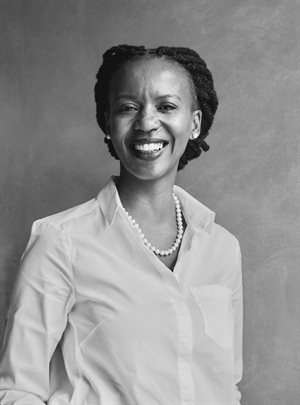
Tumi Rabanye, Strategic Director at Brave Group.
Administrative processes like candidate and voter registration, voter identification and e-voting are table stakes discussions. A key change in the 2019 elections, was the online candidate registration upgrade allowing for remote registration, updates and payments. The consumer-facing ecosystem for voter registration verification via SMS, USSD codes; an online dashboard along with a toll-free line, is a great evolution in 25 years that we almost take for granted.
In 25 years, however, who would have considered the advent of social media and the role it has to play in elections? Increasingly the communications role in elections is not just a matter of a select cohort of journalists and observers with the electorate patiently waiting to hear news; it’s on-the-minute open forum conversations and interventions in the hands of consumers. It’s interesting to watch the IEC timeline on Twitter – the interplay between SAPS, political parties and civic organisations where all parties are brought almost to account in 240-character updates. While running on traditional media, the idea that election results can be received as they unfold in the palm of one’s hand, talks to the agility it takes to run elections these days.
The notion of democracy and elections as a single day’s event, through the lens of social media, is completely dispelled. More than ever if one is to really reflect of what democracy means, one needs only to open Twitter, Facebook and Google to truly get a sense of what it means. In 25 years, aggregated through a hashtag, digital media and social media in particular prove that democracy is a lived experience in South Africa and remain always-on.
The challenge on the cards for the IEC, however, and certainly for global democracy, is perhaps how to adjust institutional mindsets to meet the outlook and vocabulary of an increasingly younger electorate. If 65.34% of the electorate who voted on 8 May, are made up of 6-million voters under the age of 30, what more is it going to take for the IEC and their ilk to mobilise young voters. For public leaders the world over, the realisation is that their future stakeholders are not their forty- and fifty-year-old peers, but ‘millennials’.
As the demography of the voting population becomes younger, fundamentals like decreasing time and user experience in casting votes are basic. The next-level conversation for election management bodies is relevancy of messaging. While elections are serious, constitutional business; being tone-deaf to the electorate, will not help all the technical development in the world.
If the last two years of youth-driven social movements are anything to go by – most memorable #FeesMustFall – maybe it’s time for a change in tact and tone to grow relevancy. The electorate of the future by all accounts is a digital native; to them tech is a given. The question is around the generational mix in the engine room driving how future elections will be delivered. One need only take a look at Ukraine where a comedian, Volodymyr Zelensky (or more importantly a relatable personality), won a landslide victory; Bobi Wine - a popstar in Uganda; and Diane Rwagira, a 37-year-old woman opposing Kagame in Rwanda. Maybe the ‘millennial’ electorate is not an apathetic delinquent in their parents’ home, but an empowered civilian protesting through silence and abstinence.